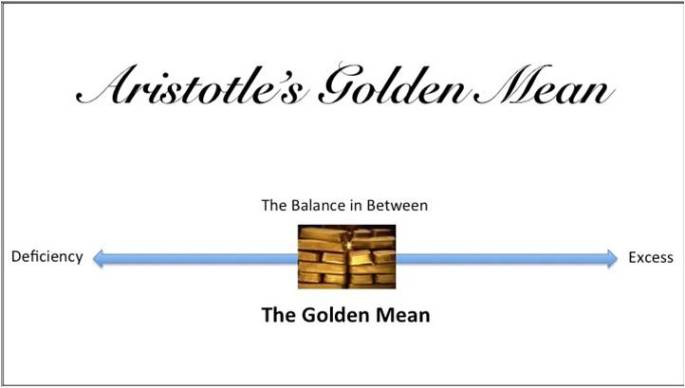
Adam Grant, in his new bestselling book, Think Again, The Power of Knowing What You Don’t Know (highly recommended), describes a few character traits that set the great presidents apart. Experts found that of the best character strengths the great ones had, that intellectual curiosity and openness to experience distinguished them from the rest. Grant said, “They read widely and were eager to learn about developments in biology, philosophy, architecture and music…”
In other words these leaders had a different mindset…rather than a certain skillset. Maybe dental schools (and other professional schools) should consider focusing more on mindsets rather than skillsets.
For those of you who study philosophy, Stoicism or positive psychology, you will recognize intellectual curiosity, openness to experience and love of learning as character strengths that come under the heading of the core virtue…wisdom.
When I look at the current state of the development of dental education over the past 50 years I see not much has changed. The focus has remained on training dentists in technical skills (techniques, materials and equipment have changed), rather than on training dentists to think more critically and to become better leaders.
It’s time to rethink dental education.
Through my years I have witnessed the coming and going of trends and fads that promised dentists happiness, freedom and success if they mastered the associated skills. From business management and sales and marketing skills to technical skills in cosmetics (veneers, Botox), implants, sleep dentistry and splint therapy, all made the promise of success.
I agree that mastering technical and business skills are the key to mastering dentistry…anyone who thinks otherwise is crazy. It is the job of dental educators to produce competent dentists…first and foremost.
Yet…something is missing…and that is becoming more and more apparent every day. With the rising costs of dental education, the rising incidents of burnout and suicide and the decline in trust by the public…I have to look at the dental education as a way to improve the existing conditions.
Maybe…it’s time to rethink dental education.
A good method of finding insight is to use what the great investor Charlie Munger would do…he would use inversion. His philosophy was to “invert, always invert.” That is not unlike the philosopher Aristotle who would explain the virtues by describing his golden mean by looking at their opposites (see diagram above). So, if our job is to find the truth— then lets look at the inversions of the strengths of curiosity and the love of learning.
First let’s take a look at the opposite or absence of curiosity and learning. Words that come to mind are orthodoxy, complacency, laziness and dogma. Then there is the condition of an excess of a love for learning — know-it-all-ism. Know-it-all-ism can be just as bad as the lack or opposite of a love of learning because it can lead to over confidence and arrogance.
Sometimes it is hard to detect the laziness and complacency in dental education but the arrogance sticks out like a sore thumb. Adam Grant suggests that we look for three behaviors that are emblematic of complacency, orthodoxy and arrogance: preaching, prosecuting and politicking. They all defend their current position until the status quo is upheld.
Preachers love to tell us why their point of view is the right one. Prosecutors take on the role of an attorney defending their position, and politicians just do whatever is popular. Grant recommends that we look at all sides of an issue by becoming scientists.
One of the roles of any doctor or health professional is to be a teacher. The word doctor comes from the Latin word for “teacher,” itself from docēre, meaning “to teach.” Yet, dental schools spend very little time educating students how to become better teachers and leaders.
Never forget that another primary role is to be competent technicians.
By neglecting the role of teacher and leader…who suffers? The patients, the community but mostly the practitioners. And that is what we are seeing in dentistry today.
How can we fulfill our role if we are not trained to be teachers and leaders?
Something else I have noticed through the years is that the best students—the A students, don’t make the best dentists. Just asking ourselves why that is can reveal more about the system than about attaining mastery and excellence.
The late and very great Peter Dawson would talk about teaching dentists critical thinking. Too many dentists focus on the outcomes of treatment and then claim success without waiting long enough to observe that actual results. Critical thinking is about being process oriented so that many future failures can be avoided…this is not only about technical dentistry but behavioral dentistry as well. Maybe it’s time for dental education to heed Dr. Dawson’s advice.
My new book, The Porch, is a tale about a dentist who suffers through depression and burnout until he meets a mentor who teaches him the real tricks to the trade. He then goes on to clinical success and more. What more you ask? Find out by reading The Porch.
Courses in positive psychology and leadership development at the dental student level would go a long way to making the dental profession better. In the end the students will achieve all of the things they became dentists for: mastery, freedom, happiness and peace of mind.
Maybe—just maybe it’s time to rethink dental education.
If you have any thoughts or feelings about this important issue please leave comments below….just don’t preach, prosecute or politicize.
 Download Our Free E-Book
Download Our Free E-Book
